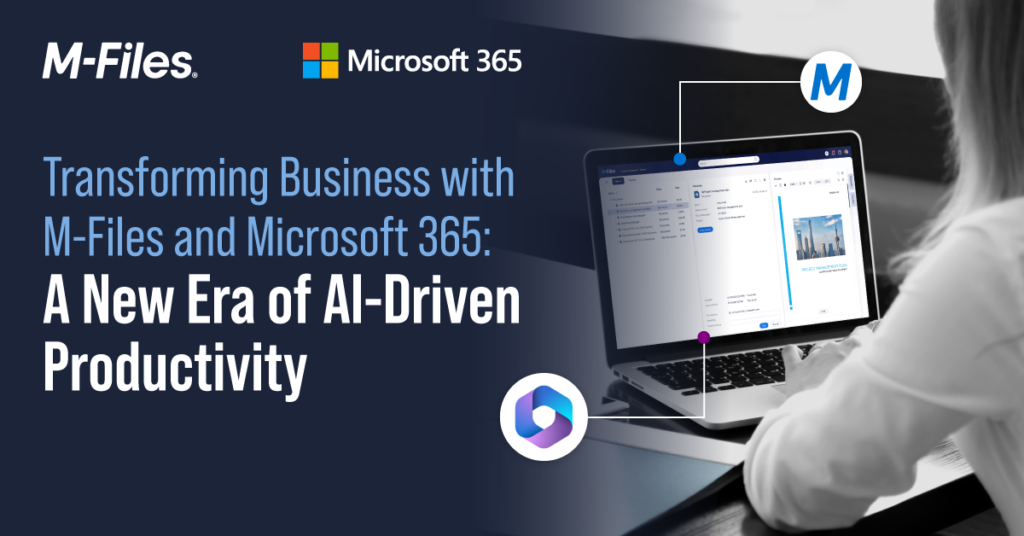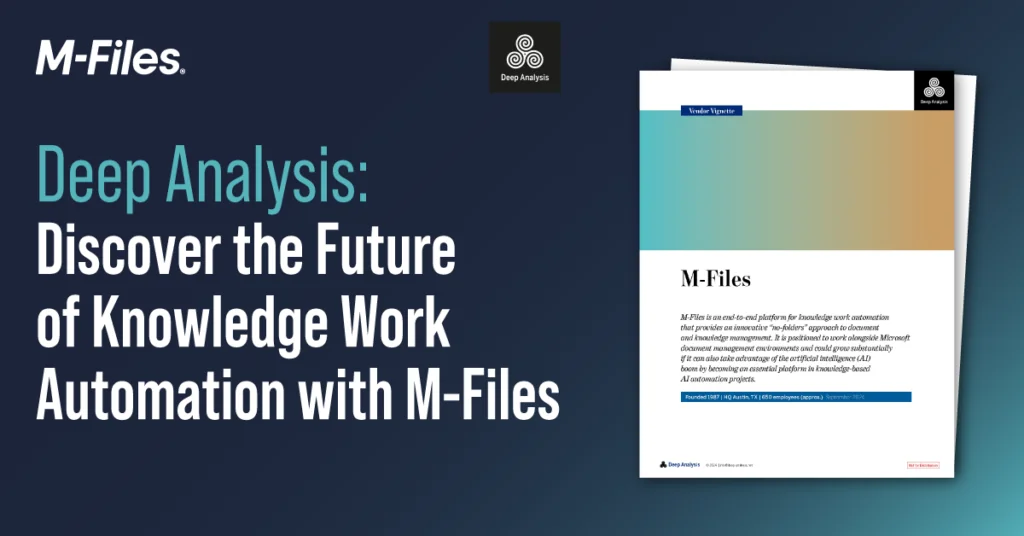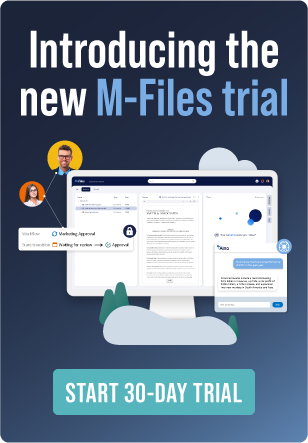Gen Z & the Future of Work: How Information Management Needs to Adapt
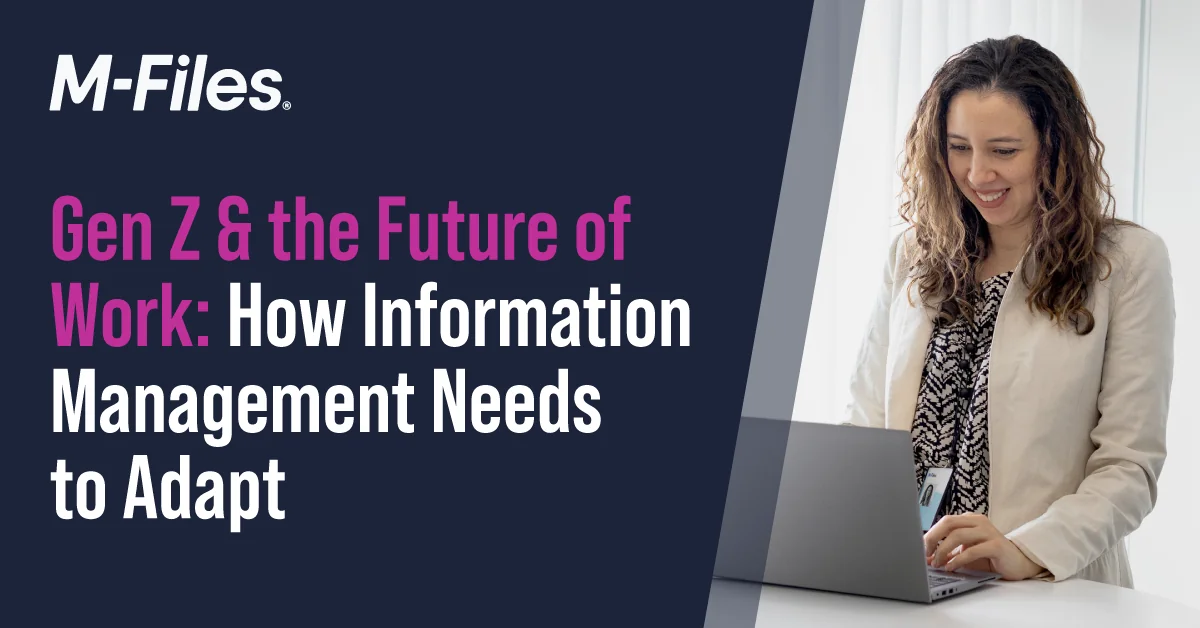
As a father of a 13-year-old boy, I’ve often marveled at how different we are when it comes to using technology. Call me old-fashioned, but my son has it good.
App-Based Habits & The Decline of Folders
Almost everything he consumes digitally is easy to find, on-demand, can be controlled by his voice or thumb, is contextual based on his preferences, and whatever he can’t find, type ahead or carousel navigation can quickly be cued up in seconds – when he wants it and wherever he is (as long he’s in a solid WiFi zone).
Think about it – his generation was born after the iPhone came out. Netflix was already transitioning from DVDs to streaming video. Gaming consoles started to introduce early concept virtual reality games. And while home PCs were already the norm – just think about all the advancements we’ve seen over the years in graphics, usability, search, and data management. Perhaps this may explain why when he passes by my office at home, he calls my desk a “museum”, as I still have a printer, occasional USB sticks lying around, a bunch of power cords, and a backup hard drive. Silly me.
Which is why Monica Chin’s recent report on the Verge entitled “File Not Found: A Generation that grew up on Google is forcing professors to rethink their lesson plan” resonated so much with me, as I see this new way of searching, organizing and viewing content almost every day in my home – and admittedly, it’s refreshing to know we’re not alone. In this report, Chin profiles how STEM educators have had to adjust their rigorous, technical curriculum based on a surprising revelation – their students struggle and are very confused when they are asked to search, store and retrieve their work on folder directories. Extremely technical concepts they get – but the basic concept of files and folders? Not so much…
Search-Centric Workflow & Content Recommendations
And this is not a surprise, given how the younger generation have grown accustomed to using app-based technology and expect this to be consistent with everything else they use daily.
Which is why kids like my son that grew up digital, find the whole concept of creating folder directories and subfolders to organize their content kind of pointless. Rather than building deep, vertical folder trees to store their data and documents on their PCs, they prefer the “data blob” method of scattered desktops or increasingly long lists of content in the same location.
Thanks in part to how they use apps like Netflix and Spotify – along with how they use school-issued Chromebooks for projects, the need for deep directories are becoming a thing of the past. Younger consumers are used to having a flat, horizontal, carousel category tree (a la Netflix) to find content that can be navigated at their own speed instead of digging into a vertical nested hierarchy view of folders and sub directories.
And if they can’t find what they are looking for – they certainly don’t want to waste time to search and look for content (think of a long sigh emitting from a frustrated teenager’s mouth). Instead, they’ll move on if they can’t find it quickly – unless a Google-like search can provide immediate returns. Which is why content recommendations, suggestions and guided decisions are so germane to their workflow – it’s what they grew accustomed to and it works!
The Rise of AI-Powered Information Management
What the younger generation may not know is the massive influence they have when it comes to the overall usability design of content management – including their unique way of accessing and categorizing content on their terms. This type of workflow has influenced how next-generation Enterprise Content Management solutions are designed now for a faster, more efficient way to work.
Leveraging AI & Machine Learning for Efficiency
Leveraging built-in technologies like Artificial Intelligence (AI), Machine Learning (ML), Natural Language Processing (NLP), and Process Automation are now the norm when it comes to improving productivity for knowledge workers. It’s all about having fewer clicks to make so that you can get to your outcomes the most efficiently way possible. And to do that, technology needs to work in seamless unison to provide that personalized level of experience – helping guide next best decisions along the way that consumers expect.
A Personalized Information Experience for Knowledge Workers
And this is where that Gen-Z consumer experience has paved the way for new and improved contextual, self-service digital experiences for Enterprise Content Management systems like M-Files. Having relevant data and documents served up at the right time for a personalized experience is very similar in how the younger generation consumes content – as they don’t want to go out and find the content – they want the content to come to them.
M-Files: Bridging the Gap to Modern Information Management
Monica Chin’s Verge article completely validates M-Files way of thinking when it comes to Information Management. M-Files unique approach to managing the influx of data and documents shouldn’t rely on antiquated folder and file searching. Today’s knowledge workers demand a lot more so that they can focus on what matters – and not continue wasting valuable time managing their vast directory trees to find what they are looking for.
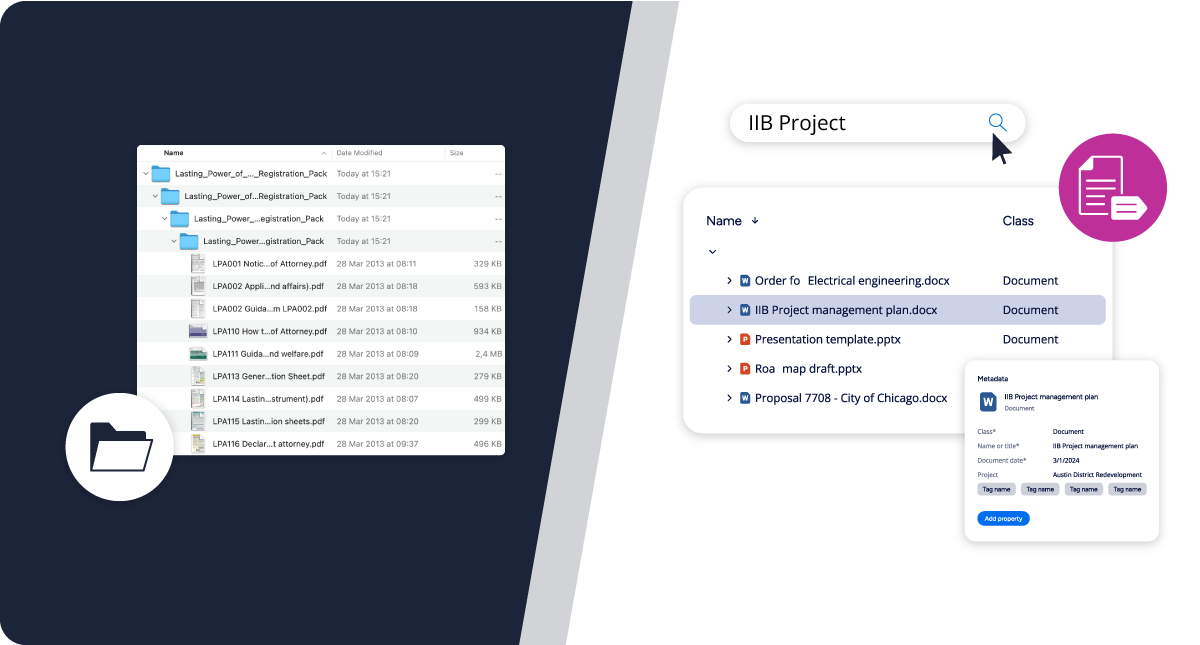
Contextual Search & Content Delivery
As an example of this new shift in working, think about how our communication methods have changed over the last decade or so. Would it be safe to assume that you email and call people less frequently now? Messaging, text and slack chats are shifting the way we communicate – why? because it’s easier and faster. We have already seen this shift take on a similar path with how we will eventually access, store, and categorize our data and documents. Personally, I think we have Gen-Z to thank.
A Future-Proof Solution for the Evolving Workplace
Now back to my 13-year-old son…I know I will never use tech like he does. I’m just not as nimble as he is when it comes to thumb swipes on small devices or remembering exactly where things are for easy access. However, he’s taught me a few things, and as technologists, we should always be open to new ways of working – especially if we’re more productive with our time… Buckle up and enjoy the information management 2.0 ride!
Ready to prepare your information management for the future workforce? See how M-Files empowers knowledge workers! Schedule a free demo or start your free trial today!


